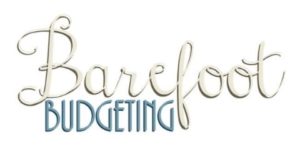*This post may contain affiliate links. As an Amazon Associate we earn from qualifying purchases.
If you’ve decided you want to be a writer, or you’re considering starting a career in freelance writing, there are many things you should know. Some people spend years building a career on writing and learning new things. Experience definitely builds upon itself and you will get better and learn to make more money the longer you do it.
That said, you can learn a few quick tips to help you fast-track your way to the career you want. So let’s take a look at how to start a career in freelance writing.
1. Start Someplace
One of the biggest mistakes people make is trying to get the perfect set of circumstances in order to start doing what they want to do. The thing is, you might not be in a position to start freelancing full time right away but that doesn’t mean you can’t start doing something.
Maybe you just submit one magazine article here and there, or you find a website online that you really want to get published with, or you take a course in your spare time to help you hone your skills. The point is that you do something.
Don’t wait for the right time, the fastest method, or the cheapest way to start your freelance business. Don’t worry that you’re not good enough or that you don’t know enough to start your freelance business.
2. Go For It! Take action
One of the most important lessons you can learn about freelancing is to take action. If you sit around and wait, time passes you by.
Entrepreneurs are doers. Freelancers are entrepreneurs. So get out there and start doing.
This isn’t to say you shouldn’t have a plan for what you’re doing and that’s what we’re going to discuss next.
3. Your Goals
What do you hope to do long term? Do you want this to be a full-time career? Do you dream of being published or winning awards? What kind of writing do you enjoy doing?
You need to take some time to sit down and determine your goals. If you want to leave your current full time job and
become a full time freelancer, this should be a goal with specific steps on how to get there.
If you are currently a stay-at-home mom and you want to earn some side money to help support your family while also fulfilling your dream of being a published writer, then this should be one of your big goals with specific steps on how to get there.
Your goals are as unique as the writer setting them up so we can’t tell you exactly what yours should be. All we can do is offer some examples. You should create short term goals and long term goals. For example, a short term goal might be to publish an article with a specific website, or to learn $1,000 from your writing.
Your goals will change over time and this is okay. In fact, it is to be expected. However, it’s important to start with something. If you don’t start with specific goals in place, you may never get anywhere because time will just pass you by without a clear vision of what you’re trying to do.
4. Assess Your Skill
What is your current skill level? How experienced are you in writing already? What skills do you have in marketing yourself or running your own business? There is more to freelance writing than just the writing itself so a good first place to start is in determining what skills you have.
So how can you accurately assess your writing skill? Well first, don’t ask your mother. Seriously, you don’t want to ask a biased source, “Do you think this is good?” If you’re going to ask anyone for an opinion on your writing skills, it should be someone successful in the industry who can accurately and with authority give you a clear answer.
If you don’t know someone like this, there are other ways to find out. Don’t spam random strangers because most successful writers are going to be far too busy to tell some stranger on the Internet whether or not they’ve got what it takes.
You can self-assess. You can take tests and quizzes on job board sites like Upwork. You can get a mentor. There are a variety of options that exist. Another Great site for finding work and that also offers help for newbies is Fiverr.
Here are some areas to look at when assessing your writing:
- Rules and conventions
- Presentation of your message
- Organization
- Spelling and grammar
- Vocabulary, tone, and expression
- Attention to the reader
- Ability to tell a story
Don’t expect to be excellent in every category but there’s nothing wrong with seeing where your strengths lie. This is going to be very important throughout your career so that you can continue to build upon your strengths while also growing in the areas you lack.
5. Seek Help
You don’t know everything and if you think you do, it only means you have even more to learn. There are many different ways to get help. The important thing to remember is that you don’t have to wait to start writing. You can start writing and pitching at the same time that you are getting help for your writing.
Here are some ways you can get help with your writing:
- Get a mentor.
- Read great books from trusted sources (we’ll list a few at the end).
- Take a course/class (many are available online).
- Study rejections and the reasons why (if you’re given a reason).
- Join a writer’s support group.
- Read articles and other great content online from writers who have been there before you.
No matter how long you do this, you should never stop looking to others who can offer help. Take advantages of the resources that are available to help you be better at what you do.
6. Build Your Brand
Even as an individual, you are a brand. You are your own brand and whether you build your business around your name, or a business name you create, your branding is still important. Branding isn’t about a fancy logo or a snazzy website, although those things could be part of it.
Your branding is about who you are as a writer, how you connect to your clients and the readers who consume your writing.
What do you bring to the world that is different? How are you unique? How do you add that unique story to everything you write? This is what makes you who you are. This is how you stand out as a writer. It will be one of the most important parts of your freelance career.
7. Start Pitching
Once you’re all set up with the steps above, it’s time to start pitching. There are a few different ways you can go about this. I recommend you get a print or digital copy of the current Writer’s Market. If you just can’t afford it, go to your local library and borrow one.
Not only is it the most trusted guide to getting published (basically, the writer’s Bible), but it will also have useful tidbits like current rate charts and advice from experts. You can use this to find tons of listings of magazines, book publishers, and small presses that want to publish you. It even lists writing contests.
You can also use ProBlogger, Contena, and similar websites to help you find online writing gigs. You should be careful of bidding sites like Freelancer.com and ODesk.com. It’s not that you can’t find good projects there, but most of the time you will end up in a bidding war that threatens to drive your prices down to unreasonable places.
It’s better not to waste your time from the very start. Value your work and others will as well.
More Resources
If you want to learn more about how to start a career in freelance writing, here are some excellent books to check out:
Writer’s Digest Handbook of Magazine Article Writing
The Essential Guide to Freelance Writing
The Writer’s Digest Guide to Query Letters
Secrets of a Freelance Writer: How to Make $100,000 a Year or More


